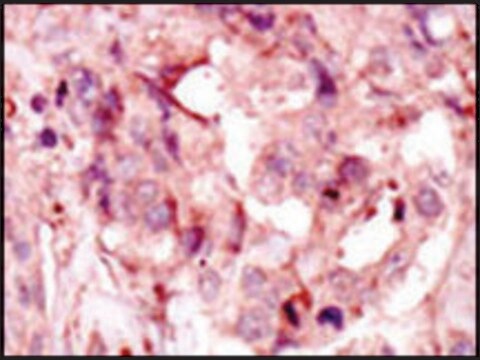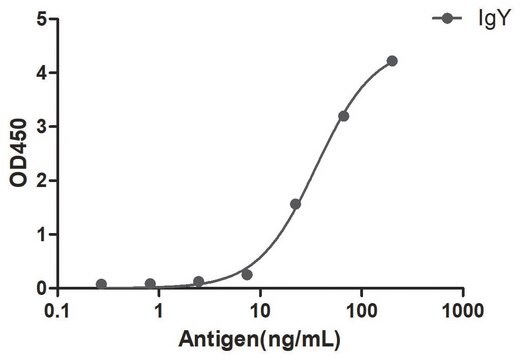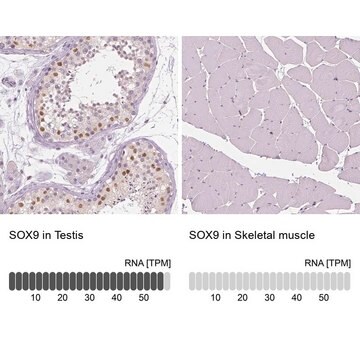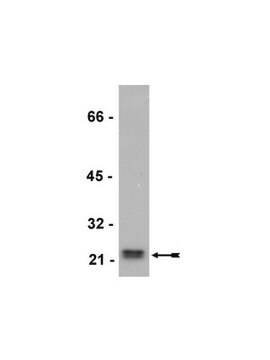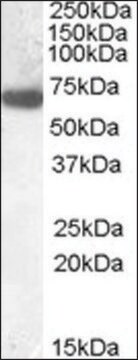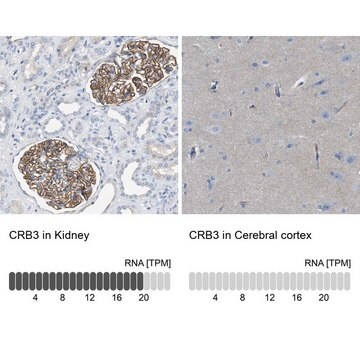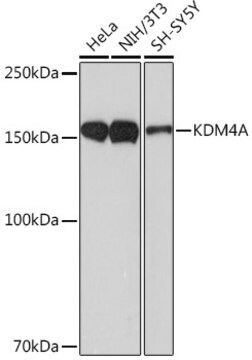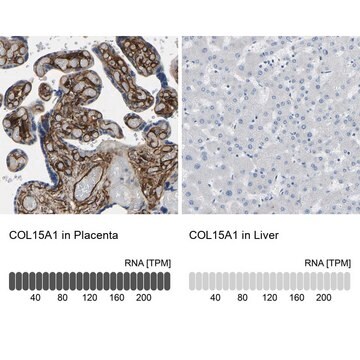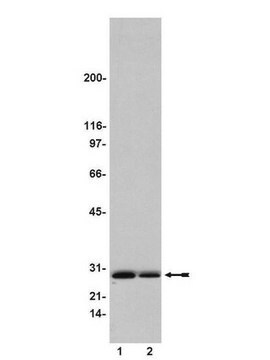SAB5703000
Anti-Glucokinase (GCK) Antibody, clone 4K9D5, Rabbit Monoclonal
Sinónimos:
FGQTL3, GK, GLK, HHF3, HK4, HKIV, HXKP, LGLK, MODY2
About This Item
Productos recomendados
biological source
rabbit
Quality Level
material
colorless
clone
4K9D5, monoclonal
form
liquid
mol wt
52 kDa
species reactivity
rat, human, rat
concentration
0.32 mg/mL
technique(s)
immunoprecipitation (IP): 1:50 - 1:200
western blot: 1:500 - 1:2000
color
colorless
isotype
IgG
immunogen sequence
LEYDRLVDESSANPGQQLYEKLIGGKYMGELVRLVLLRLVDENLLFHGEASEQLRTRGAFETRFVSQVESDTGDRKQIYNILSTLGLRPSTTDCDIVRRACESVSTRAAHMCSAGLAGVINRMRESRSEDVMRITVGVDGSVYKLHPSFKE
UniProt accession no.
shipped in
wet ice
storage temp.
−20°C
target post-translational modification
unmodified
Gene Information
human ... GCK(2645)
General description
Immunogen
Application
Storage Class
10 - Combustible liquids
wgk_germany
WGK 1
Certificados de análisis (COA)
Busque Certificados de análisis (COA) introduciendo el número de lote del producto. Los números de lote se encuentran en la etiqueta del producto después de las palabras «Lot» o «Batch»
¿Ya tiene este producto?
Encuentre la documentación para los productos que ha comprado recientemente en la Biblioteca de documentos.
Nuestro equipo de científicos tiene experiencia en todas las áreas de investigación: Ciencias de la vida, Ciencia de los materiales, Síntesis química, Cromatografía, Analítica y muchas otras.
Póngase en contacto con el Servicio técnico